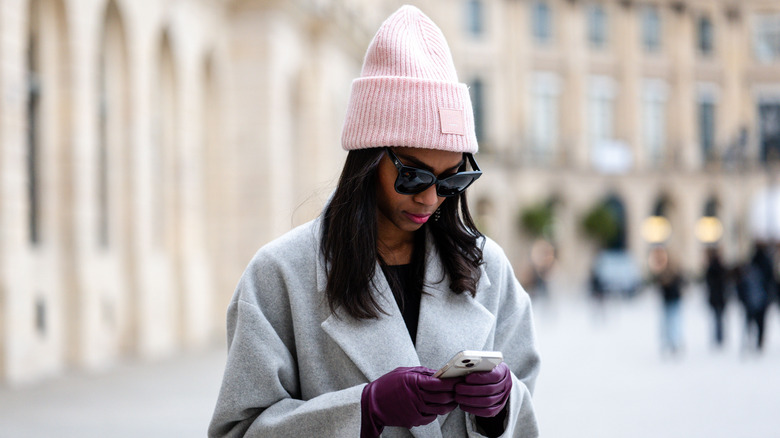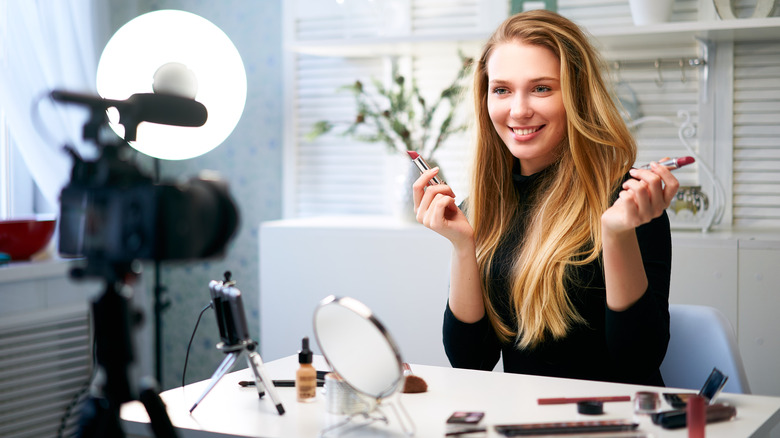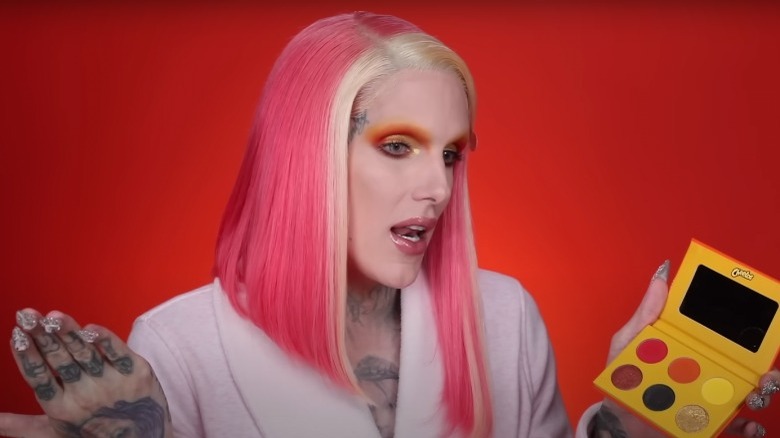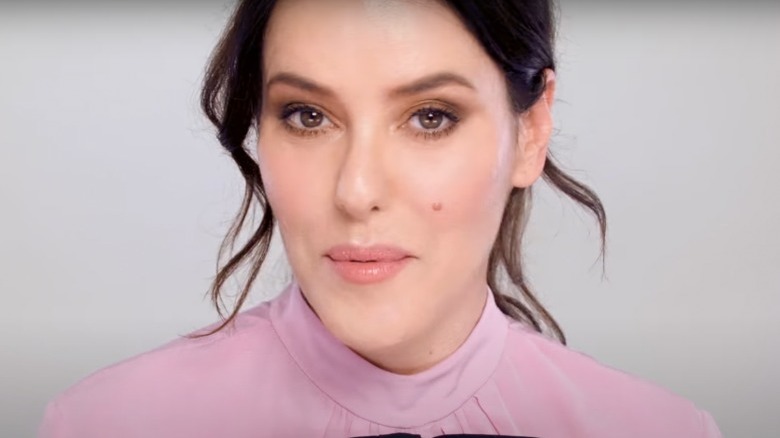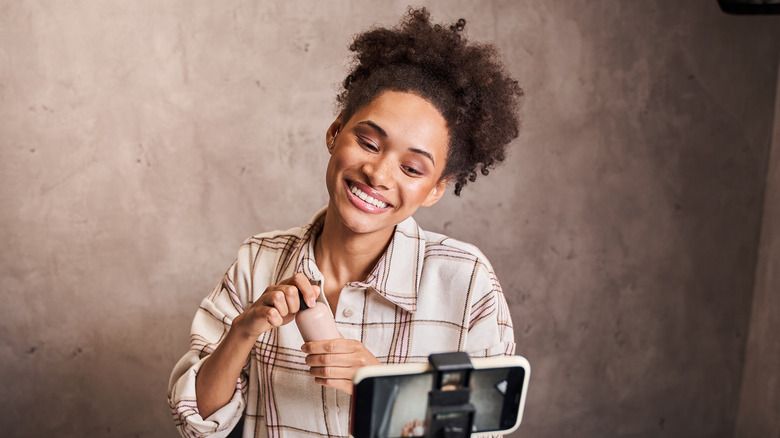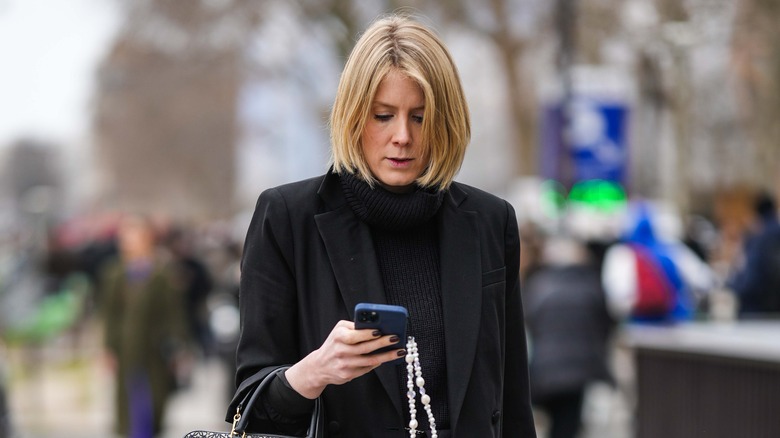The 'De-Influencing' Sham Confirms Social Media No Longer Serves Us
There's no denying that social media has selling power. The reign of influencers, on sites like Instagram and TikTok, proves that there's major money in promoting products to followers. Brands are well aware of this power too. Insider Intelligence reported that in 2022, direct-to-consumer brands (meaning that they don't use retail partners as a middleman) spent 231% more in the second quarter than they did in 2021, coming to $30 million in TikTok marketing costs.
Social media has a profound influence on its followers, mostly users aged 18-34, so older buying markets aren't as heavily swayed by sites like TikTok. But for those who do use social media, the power of influence is real. The hashtag #tiktokmademebuyit says it all and there's a legitimate reason why social media has such an intense sway. As opposed to traditional advertising, social media creates the illusion that we're being spoken to by a peer or a "friend," making us more trusting. Because we don't automatically register the content as an advertisement, social media can be a powerful tool in swaying us as consumers.
But there's an interesting shift in the world of influencing. The de-influencing trend has gained considerable traction, with the hashtag #deinfluencing racking up over 76 million views on TikTok. The trend is exactly what it sounds like. Influencers are flipping the script by creating content where they tell followers what not to buy. While it sounds countercultural, the de-influencing trend so pushed by social media actually doesn't serve us.
De-influencing is still influencing
De-influencing in its truest sense stands for the idea that we don't have to keep buying things just because they're new and someone we follow on social media says they're great. At its core, the trend is a good one. But the problem with de-influencing, as we've seen time and again, is that it's just influencing by another name, following the formula: "Don't buy this. Buy this instead." Consumers, including those on social media, are looking for honesty. Is this product as good as everyone says it is? Is this worth my money? De-influencing gives the guise of honesty, so we think we can trust the creator, only to discover that we're still being influenced, just down a different road.
This faulty trend has many unfortunate implications, particularly suspicion in a culture that's already facing trust issues with what we see online. Influence.co raised the issue of the ethics behind influencers. Brands often have very little oversight into how an influencer touts their product. People want more transparency, claiming that influencers should be educated on the products they're pushing. It can also lead to overspending. What happens if an influencer gives a negative review about a product that a viewer loves, and this person feels pushed to purchase the more expensive item? Millennials, CNBC notes, are more likely to spend money they don't have because of something they saw on social media, possibly putting them into precarious financial positions.
Some of the more famous de-influence influencers
Where we once thought that social media offered the chance for honest reviews, it's becoming clear that the "honesty" of de-influencing is often just influencing. Online personality Jeffree Star made a name for himself on YouTube by offering reviews of makeup products, with the catchphrase "Is it Jeffree Star approved?" After Star had this platform of trust built with his fans, he launched Jeffree Star Cosmetics, a hugely successful, multi-million dollar empire. Star was offering product reviews before the de-influencing hashtag had taken off. However, the concept is the same, and it forces us to ask, did Star's brand take off because he had told us who not to buy?
TikTok user valeriafride gave a perfect example of de-influencing when she gave the low-down on popular beauty products. She said that the Olaplex No. 4 Bond Maintenance Shampoo and No. 5 Bond Maintenance Conditioner were not worth the expense. Conversely, she said that the Ouai fine hair shampoo and conditioner were worth it. This style of content isn't inherently bad. It's fine if social media users want to share what worked and didn't work for them. But calling something a de-influencing video when it's simultaneously promoting other brands seems counterintuitive. For us as buyers, it means we're fielding content that appears to be authentic only to find out that we're being advertised to when we thought we were getting honest reviews. And it's not just limited to cosmetics. De-influencing can impact anything that sells.
When it works: There are some real no-buy influencers out there
De-influencing isn't always a den of hypocrisy. We all love honest reviews. And watching someone else share what not to buy can save us from spending a lot of money on products that don't work. Not only that, but real de-influencing, where people encourage others not to fall for clever marketing, would actually be environmentally transformative. Author JB MacKinnon told The Guardian that in order to save the planet, we need to stop shopping. "When people buy less stuff, you get immediate drops in emissions, resource consumption, and pollution, unlike anything we've achieved with green technology," he said.
Can de-influencing really reduce shopping? Makeup artist Lisa Eldridge posted a makeup tutorial on YouTube called "The 'Buy Nothing' Everyday Makeup Tutorial." She said, "I don't know about you but I am feeling slightly overwhelmed at the amount of new products at the moment." The products she used in her video were based on makeup products that any frequent makeup user would likely already own, and she gave tricks to adapt a look should someone not own those exact products.
Has de-influencing heralded the end of the influencer era?
The trend of de-influencing has poked some holes in the fabric of social media. If a trend that prides itself on telling consumers the truth about products doesn't even turn out to be authentic, then we may have to pause and consider how much social media actually helps us. The hypocrisy of the trend pushes people to look at the other facets of social media and changes the way we look at influencers themselves. Content creator Josie Bullard, who boasts over 200,000 followers on TikTok, told Today that the influencer brand as we know it no longer appeals to many social media users. "I feel like for a long time, it's been all about kind of showcasing this like lavish lifestyle, something perfect, something maybe like a little bit out of reach or unattainable, and it's been very intriguing for people to want to follow along," Bullard said. "I just feel like people are starting to crave something a little bit more real, authentic, and relatable."
It's worth noting that Bullard believes in the de-influencing trend, but the concept as it stands in terms of curbing consumption. The craving for authenticity seems to be a growing feeling. Vogue noted that the era of the celebrity influencer is ending after enough people called out inauthentic marketing. The unattainable lifestyle is no longer an interesting motivator to push purchases and is changing the social media landscape.
Why personal responsibility is crucial when it comes to social media
The increasing frustration with hypocrisy on social media, especially showcased by the de-influencing trend, has prompted a closer look at how social media itself impacts our lives. As much as we love it, social media may not be serving our best interests because, in many cases, it's all for show. Content creators use a trend like de-influencing to make it appear like they're "helping" us when in many cases, they're just serving their own business interests. Rolling Stone stated that influencer marketing is coming to an end, because of a rampant lack of trust in social media and influencers themselves. Sounds about right.
While we may not have the power to change social media — it's a beast that's bigger than all of us at this point — we do have the power to alter our own relationship with it. Mount Sinai offered mental health suggestions for using social media safely. The central argument was that the social media presence of others (and ourselves) is often so inauthentic that there's no need to internalize the content we see. So if we know that social media promotes such inauthenticity, it begs the question — is it really serving us anymore?
